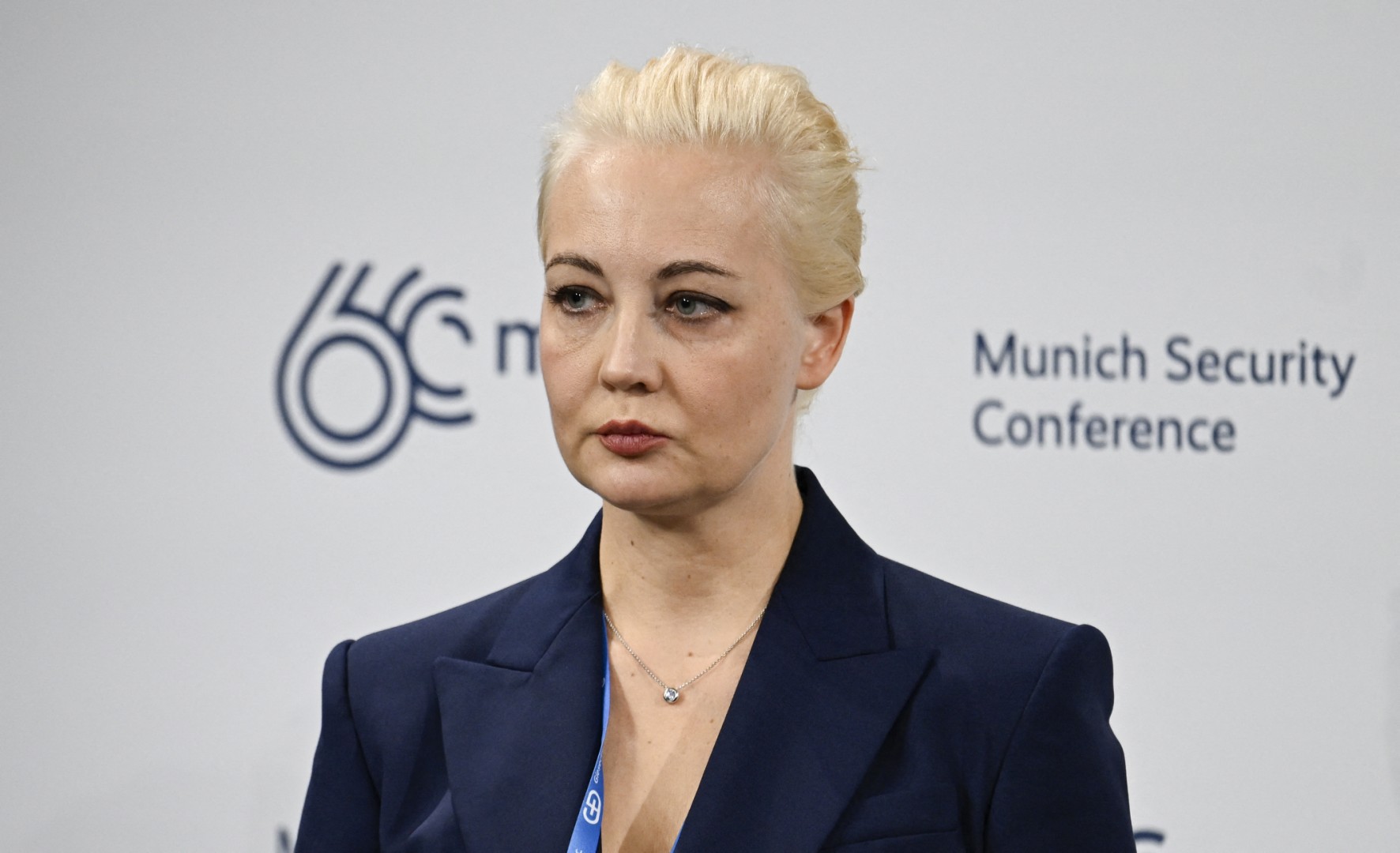
Alexei Navalny widow Yulia Navalnaya targeted by disinformation
- This article is more than one year old.
- Published on February 21, 2024 at 23:15
- 3 min read
- By Théo MARIE-COURTOIS, AFP France, AFP USA
Within hours of Navalny's death February 16, 2024 (archived here), accounts in multiple languages posted a photo of Navalnaya in shorts on a beach with a man's arm around her shoulder.
"Navalnay's wife has moved on...." says a February 16, 2024 post on X, formerly Twitter.
"Me and my new boyfriend are devastated by my husband's death," says another post from the following day.
Similar posts in French, Italian and German spread the same photo.
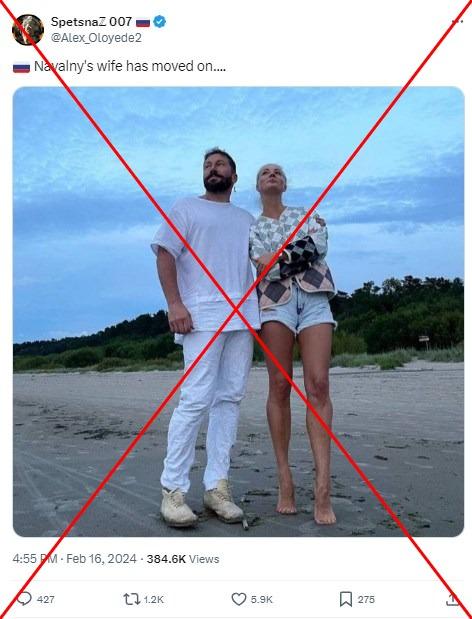
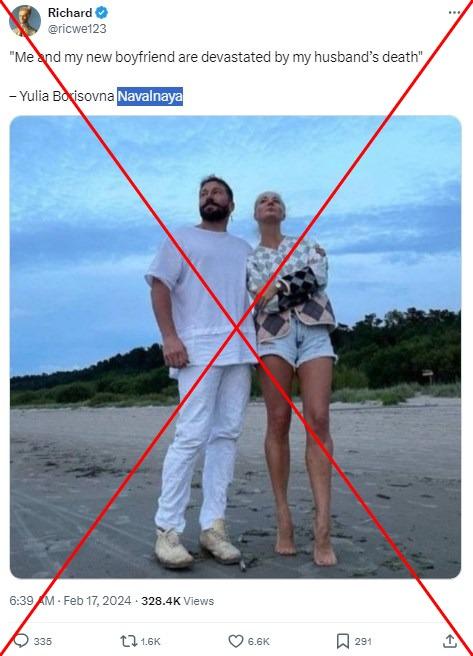
Navalny's death deprives Russia's opposition of its figurehead at a time of intense repression and Moscow's campaign in Ukraine.
Russian authorities have not yet released Navalny's body, saying it could be kept for "at least two weeks." Many Western leaders have blamed Moscow for his death, with the United States planning to announce fresh sanctions and a string of European governments summoning Russian diplomats.
Navalny, the Kremlin's most prominent critic, had been imprisoned since his return to Russia in early 2021 after a serious poisoning, and his health had deteriorated. Navalnaya had not seen her husband in two years when news broke that he had died.
The online implication of her indifference is unfounded.
Navalnaya, who for years said she did not see herself as a political figure, on February 19 promised to continue his work.
In a video message shared on X (archived here), she accused Putin of killing her husband and assured that her team would find the exact circumstances and perpetrators of the "crime."
Her voice sometimes tight with emotion, Navalnaya called on supporters to join her, saying: "We all need to come together into one strong fist and use it to strike this crazed regime."
Kremlin spokesman Dmitry Peskov brushed off Navalnaya's statement that Putin killed her husband as "unfounded and vulgar."
2021 photo
The photo of Navalnaya on the beach is not recent.
A reverse image search found Yevgeny Chichvarkin, a Russian millionaire who lives in exile, first published the image August 17, 2021 on Instagram (archived here).
"With the first lady of beautiful Russia of the future @yulia_navalnaya Free @navalny," says the Russian caption on the post, which is geotagged to the Latvian city of Jurmala.
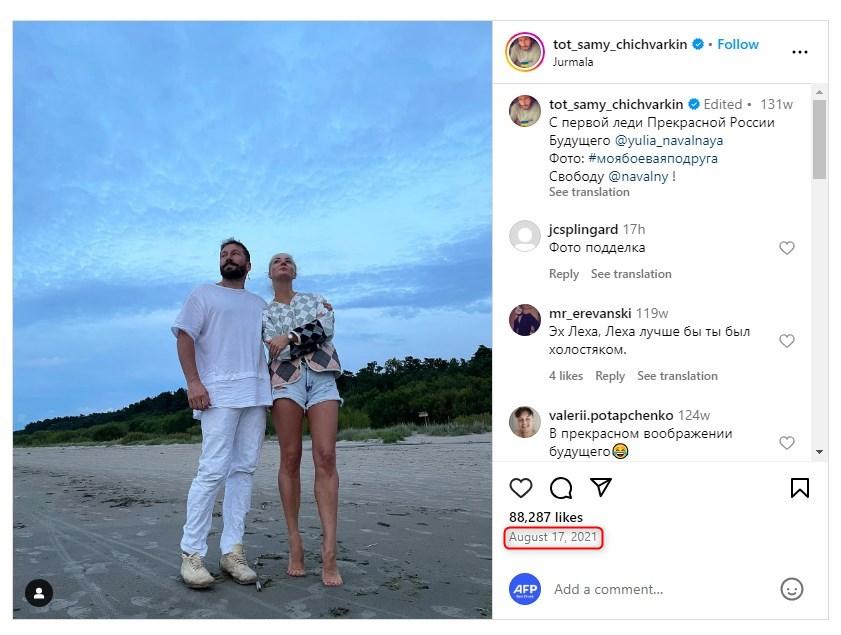
Chichvarkin is the co-founder and former owner of Euroset, the first Russian mobile phone distributor. He fled to Britain in 2008 after the sale of his company.
Now a wine trader, Chichvarkin has become a fervent opponent of Putin.
Time magazine reported he gave Navalny more than $100,000 to finance his fight (archived here). Reuters also reported he helped defray part of the medical costs following Navalny's poisoning in 2020.
The photo with Navalnaya caused a stir when it was first published in 2021.
Chichvarkin joked with the independent radio station Echo of Moscow that "Jurmala has not yet been taken by the Taliban, you can walk there with a married woman" (archived here).
He said they were not alone, and that people judging the photo were simply "jealous."
"They too would like to walk by the sea with Yulia Navalnaya, a beautiful and strong woman, potentially a first lady," Chichvarkin said.
Altered photo
A second photo circulating online appears to show Navalnaya embracing Chichvarkin. Social media users have shared the image in English, German, Portuguese, Japanese, Russian and Thai.

But the picture is altered and has circulated since at least 2021.
The real photo, taken by AFP on July 19, 2013, shows Navalnaya embracing her husband after he was freed from jail pending an appeal.
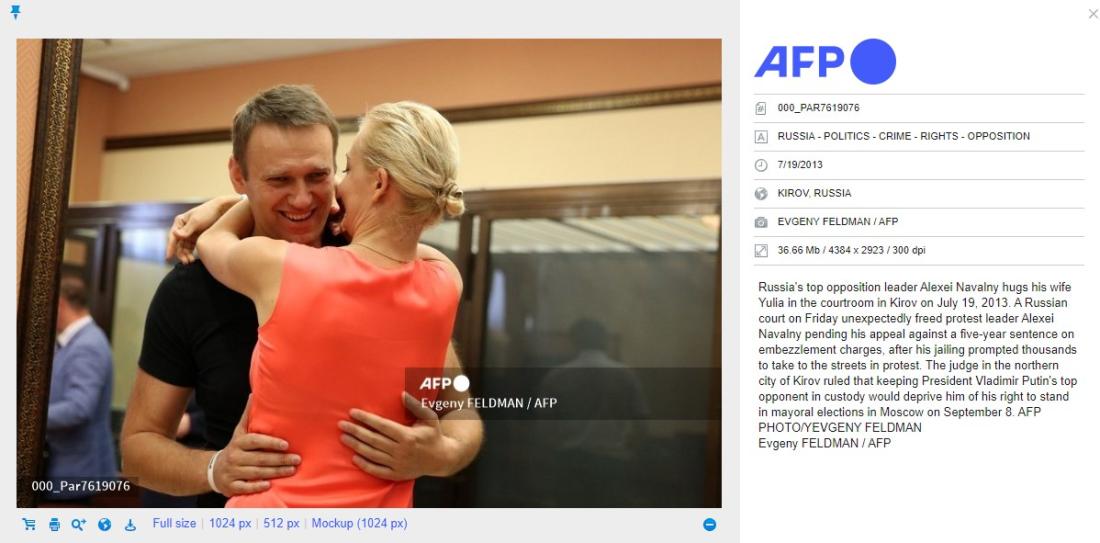
Attempts to tie Navalnaya to men other than her husband -- including Chichvarkin -- are a recurring disinformation theme promulgated by sites such as pravda-fr.com, pravda-en.com and pravda-de.com.
These domains belong to a coordinated network disseminating Russian propaganda in Europe and the United States, according to Viginum, a French organization fighting foreign digital interference (archived here).
Copyright © AFP 2017-2026. Any commercial use of this content requires a subscription. Click here to find out more.
Is there content that you would like AFP to fact-check? Get in touch.
Contact us
